School is in Session: We’re writing opening numbers! 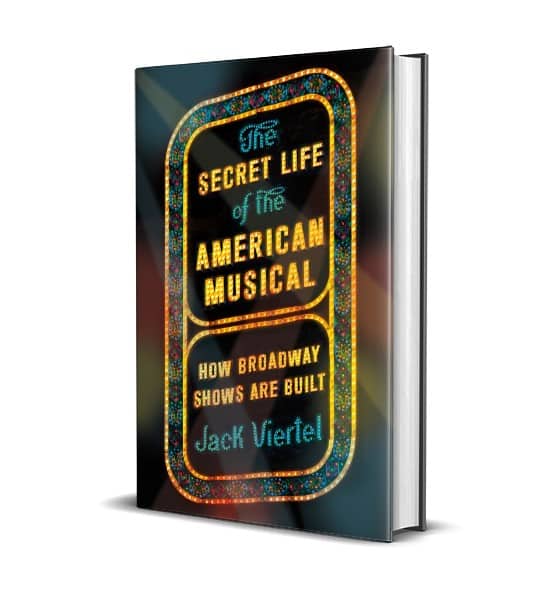
We’ve enrolled in musical Summer School here at MusicalWriters.com, and our text for the next 12-ish weeks is The Secret Life of the American Musical – How Broadway Shows are Built by Jack Viertel.
Haven’t gotten your copy yet? Get it here on Amazon.
We’ll be discussing this book both here on the blog and on Facebook, so be sure to follow us there to keep up!
We’re not starting at the very beginning (although that’s a very good place to start). We’re picking up discussion with chapter 2: “Curtain Up, Light the Lights.” But don’t miss reading “Tuning Up” and “Overture,” as they provide a good foundation, and, as in musicals themselves, are important to getting your show off on the right foot.
Let’s get started!
Note: These are my notes and highlights. I encourage you to comment below the article on the things that stood out to you!
1. Avoid confusion when writing opening numbers.
Your audience has paid for a ticket. They’re in their seats, anticipating that first moment. At least for the moment, they’re hopeful that this is going to be a great show.
And Jack’s first line in this chapter??
“When the curtain goes up, the audience is in trouble.”
~City of Angels director Michael Blakemore 1
Oh boy.
Then a bit later: “Confusion was his enemy” (referring to the job of a director when crafting his/her show). 2
As a business owner and entrepreneur, I study and listen to many successful business leaders in marketing fields who stress the importance of clarifying your message. One of my favorites, Donald Miller with StoryBrand, uses the tagline “Confuse and you’ll lose.”

The same applies here. Opening numbers demand clarity.
When constructing your “curtain up” moment and writing opening numbers, you must be able to answer these questions:
- Who are the characters on stage?
- How do we tell them apart?
- What does each one want?
- Which characters are most important?
- Which characters are purely aesthetic?
- Where are we supposed to look?
Haven’t written your opening number yet? No problem.
2. The First May Be Last
It’s common knowledge—among those who have written complete shows—that opening numbers are often written last.
Why?
It’s hard to know what’s important at the beginning, until you know how the story will finally work itself out.
If you’re still working on your show, push that opening number to the back burner for now. I know this can be slightly excruciating for those of us who are list-makers, structure freaks, and slightly OCD about doing things in order. But it’s going to be okay. Actually, it’s going to be BETTER.
Get that story arc finished first. Then you can go back and consider where and how to jump in.
3. Be Willing to Rework
Regarding the opening to A Funny Thing Happened on the Way to the Forum, Viertel speaks of producer Hal Prince, director George Abbot, and composer/lyricist Stephen Sondheim having a relentless commitment to the success of the show, even after it tanked in its premier in New Haven. Wisely, the team invited in a fresh brain. Jerome Robbins provided a quick diagnostic and suggested a rework of the opening number.
After initial resistance, Sondheim accepted the challenge and used his “natural genius” to construct “Comedy Tonight” which catapulted the show to a new pedestal of greatness.
How are you doing at taking criticism for your writing? Are you willing to bring in a neutral, fresh set of eyes and ears to check the pulse of the show? Can you willingly kill your darlings?
4. Make the Opening Number memorable
Typically, opening numbers start in one of two ways:
- Let’s hear from everyone… all hands on deck! (Pippin, A Chorus Line, Into the Woods)
- Let me tell you a little story….and it’s all about me. (Oklahoma, Gypsy, Fiddler on the Roof)
Of course, there are hundreds of variations on those options. For examples, see this article: Another Show, Another Opening Number!
Viertel emphasizes that a “good idea for a musical” is having a protagonist who is “instantaneously memorable” like the brilliant Gypsy Rose Lee.
Think about the characters in your opening.
- Does the audience want to spend the next 2 hours with them?
- Do they have a passion for something meaningful?
What are examples of Opening Numbers who make the main characters instantly memorable? Comment below!

5. Tell Us What the Show is About
Moving on to his opening number comments on Fiddler on the Roof, Viertel mentions Jerome Robbins’ (director/choreographer) weighty question to Sheldon Harnick (lyricist) and the rest of the creative team: “What’s it about? What’s it about? What’s it ABOUT??”
It’s important to think about WHY your show exists. Not only the facts or entertainment value of the story you’re telling, but why it should be told here and now.
It can take some time to really figure out the heart of a show. Such was the case in Fiddler.
“Finally, the show’s producer, Hal Prince, recalled, “when Jerry Robbins asked, ‘What’s it about?’ for the hundredth time, Sheldon snapped back, ‘It’s about tradition! What else can it be about?’ And Jerry said, ‘Okay—write a song called “Tradition.”’” 3
Have you figured out the heart of your show? What is it ABOUT? Figure it out, and make sure it’s clear in your opening number.
What thoughts stood out to you in this chapter? What are your favorite opening numbers? What makes them great? Scroll down and let’s chat in the comment section below!

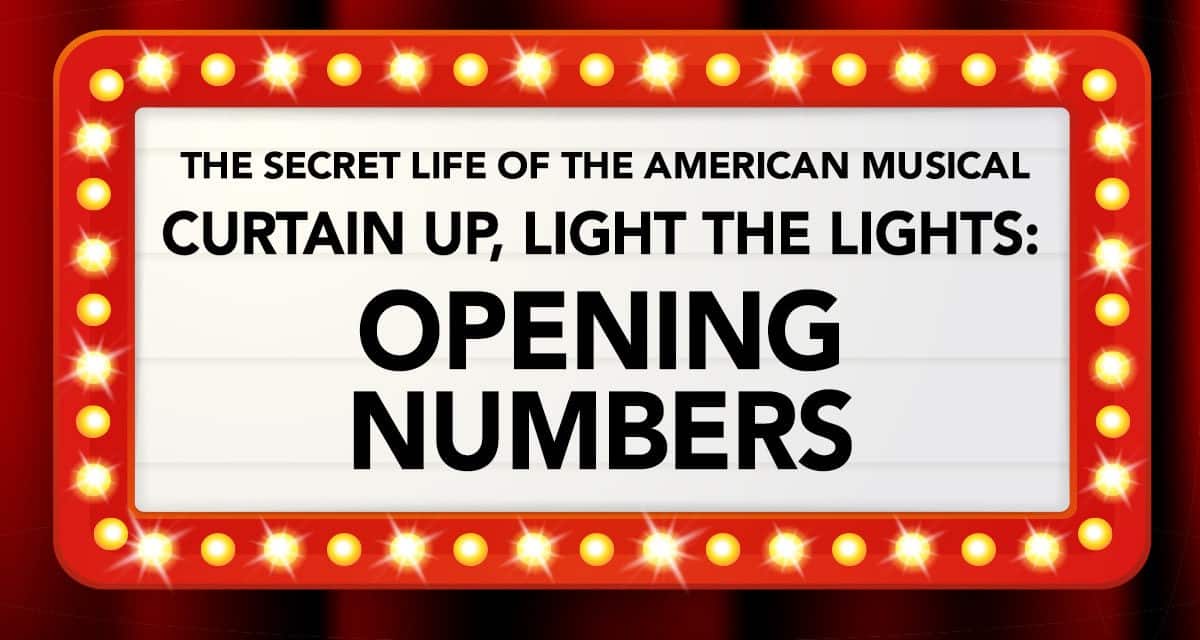

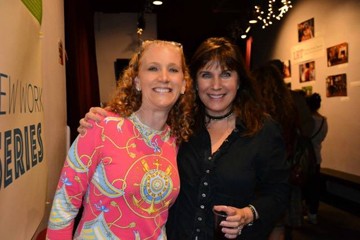
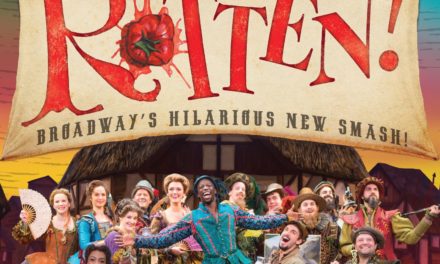


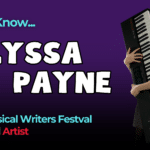


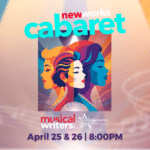








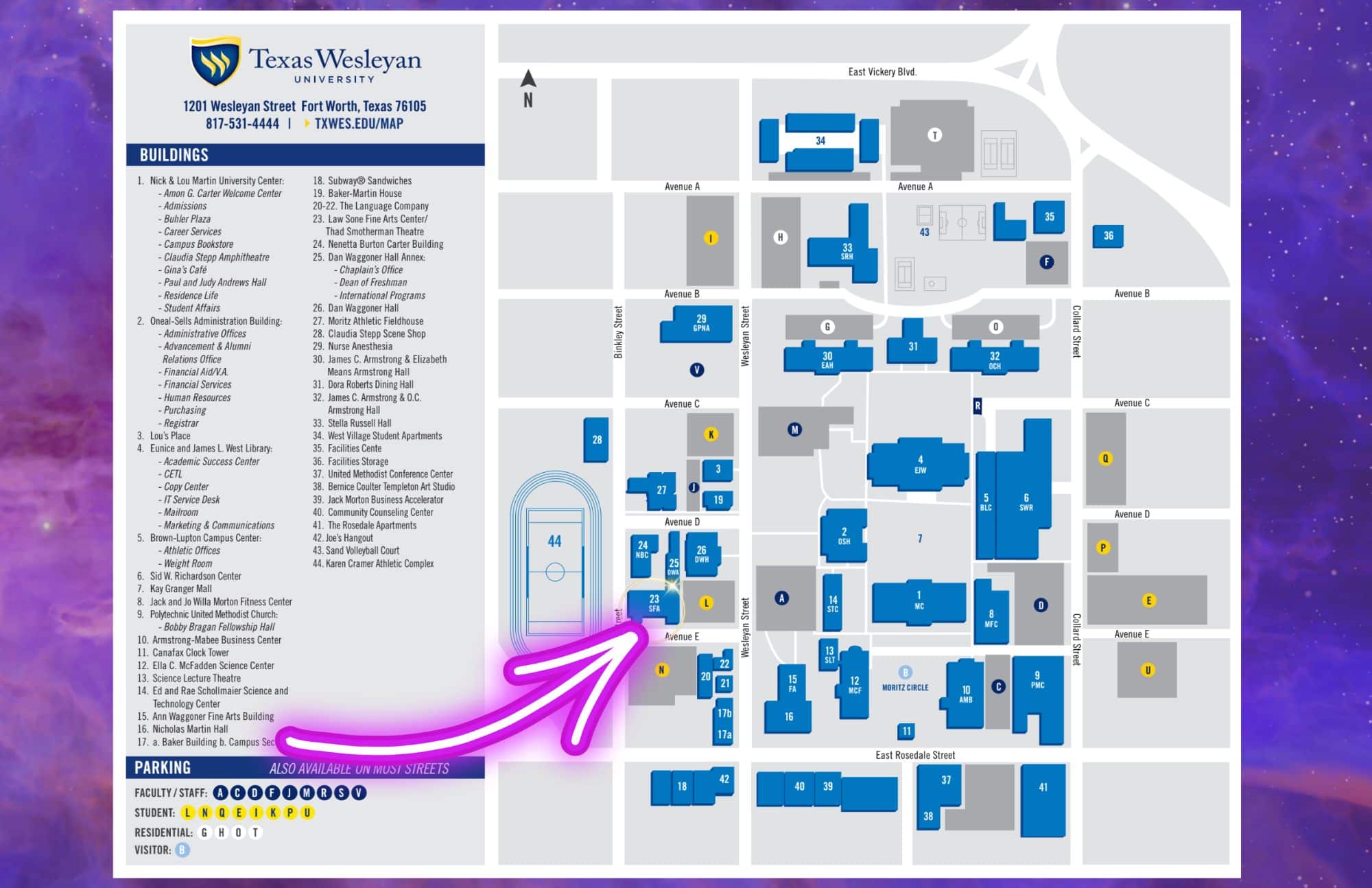
It’s surprising Viertel doesn’t mention It’s a Typical Day In Dogpatch, USA, which manages to introduce a huge number of characters in incredibly concise stanzas, each containing a solid punch line. That opener is more valuable as the years go by, because the audience in the 50s knew the comic strip, Li’l Abner and today no one does. I find it noteworthy that some of these opening numbers introduce minor characters. How many of the Rock Island salesmen do we ever meet again? Uncle Jocko? Tevye identifies a beggar and a rabbi who turn out to be far from central to the story.
This chapter talks about a number that, I feel, doesn’t really work: Company, from Company. Yes, it sets the scene with that busy signal and engenders interest in who this Bobby is. But, seeing the show, I find I’m not invested in the idea that companionship matters, or is a pressing issue for anyone. “That’s what it’s all about it, isn’t it?” I never feel this matters to any of those good and crazy people, nor Bobby.
There’s definitely an illusive alchemy finding the sweet spot between confusing your audience and info-dumps/clumsy-exposition. I mean, you have to leave room for a little confusion, it just has to be confusion that the audience doesn’t feel was unearned later. Most audiences love being confused – if they are payed back with revelation later … but yeah, you have to earn their trust first …
While it certainly works very well for so many famous musicals that use it, the “Let’s meet everyone” opener has become too de rigueur as advice to new musical writers. Whenever I see one, I immediately start yawning unless something unique emerges from this approach that can suck me in. I prefer something along the lines of the “It’s all about me” approach to get the audience invested in a character first. Then the audience is ready to experience that character’s upcoming world.
“Company” is a strange musical for me because I never care about Bobby until the very end, when “Being Alive” reminds me of how vacuous his life has been up to that point because of his inability to commit.
I find it helpful to write the opening number first (even if I have to rework it later) since it gives me a view of the world of the play and the direction I want to pursue. That seemed to work for Lin-Manuel in Hamilton, and it seems to work most of the time for me as well.
(Sorry I cannot join you on FB as I have closed my account for privacy reasons.)
Have you seen any opening numbers that leave the audience confused?